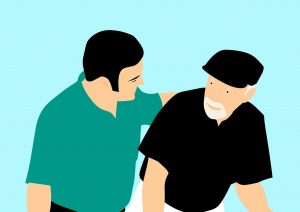
“Life is what happens when you’re busy making other plans” goes the famous quote: the years heading towards retirement are rarely a straight line… and finding oneself having to provide care or support a family member can make a serious dent on our future finances.
New research from Pension Bee shows that two-in-three people are likely to take time out to provide unpaid care at some point during their working life, and their “Carer’s Pension Gap Report” has highlighted the extent of unpaid care in the UK – and how it affects people’s retirement savings.
The report identifies key moments when people are most likely to need to take time out of work to provide care. These are: taking care of children (48% of people), followed by looking after parents (30%), a partner (21%), and grandparents (15%).
While just 5% reported having to look after grandchildren, this figure rises to 19% of carers aged between 55 and 64. Three of the key care moments are most likely to occur in someone’s late 50s or early 60s, in the all-important build-up to retirement when we look to boost our savings.
The damage to our future finances can be severe: PensionBee estimates that for every year spent out of work to perform unpaid care, a pension pot is roughly £5,000 lower at retirement, while for every year spent working part-time (three days a week) it is roughly £2,000 lower.
The gender factor is also considerable: while a higher proportion of female carers note looking after their children as the reason for having taken time out of work (a factor believed to be a root cause of the gender pension gap which stands at 38% nationally), male carers are more likely than female carers to look after their parents or partner.
How much will this all cost?
After taking a 25% tax-free lump sum, someone facing the Carer’s Pension Gap could receive a retirement income of approximately £12,222 per year with the larger £222,000 pot, compared to an annual income of roughly £10,582 with the smaller pot of £193,000. The findings show that someone who has taken time out of work to care can expect a basic standard of living in retirement, with an annual income of approximately £20,000 including a full State Pension and annuity at today’s rates.
This falls slightly short of the £23,000 that the Pensions and Lifetime Savings Association recommends for a moderate standard of living in retirement.
Becky O’Connor, Director (VP) Public Affairs of PensionBee, commented: “We are a nation of carers. Millions of workers; both male and female, old and young, are filling the gaps created by a lack of social care support, at great personal cost. The chance of this affecting any one of us throughout our working lives is high. The consequences go beyond pensions and security in later life, affecting people’s careers, personal lives, and also the UK economy.”
Find out how much caring might impact YOUR future finances
If you think there is a chance that your future pension savings might be impacted by taking a break from full-time work, you can see the effect this will have on your retirement income by running different scenarios through the RetireEasy LifePlan. That can help you make an informed decision on whether to start saving more now, or lower your income expectations in retirement.
